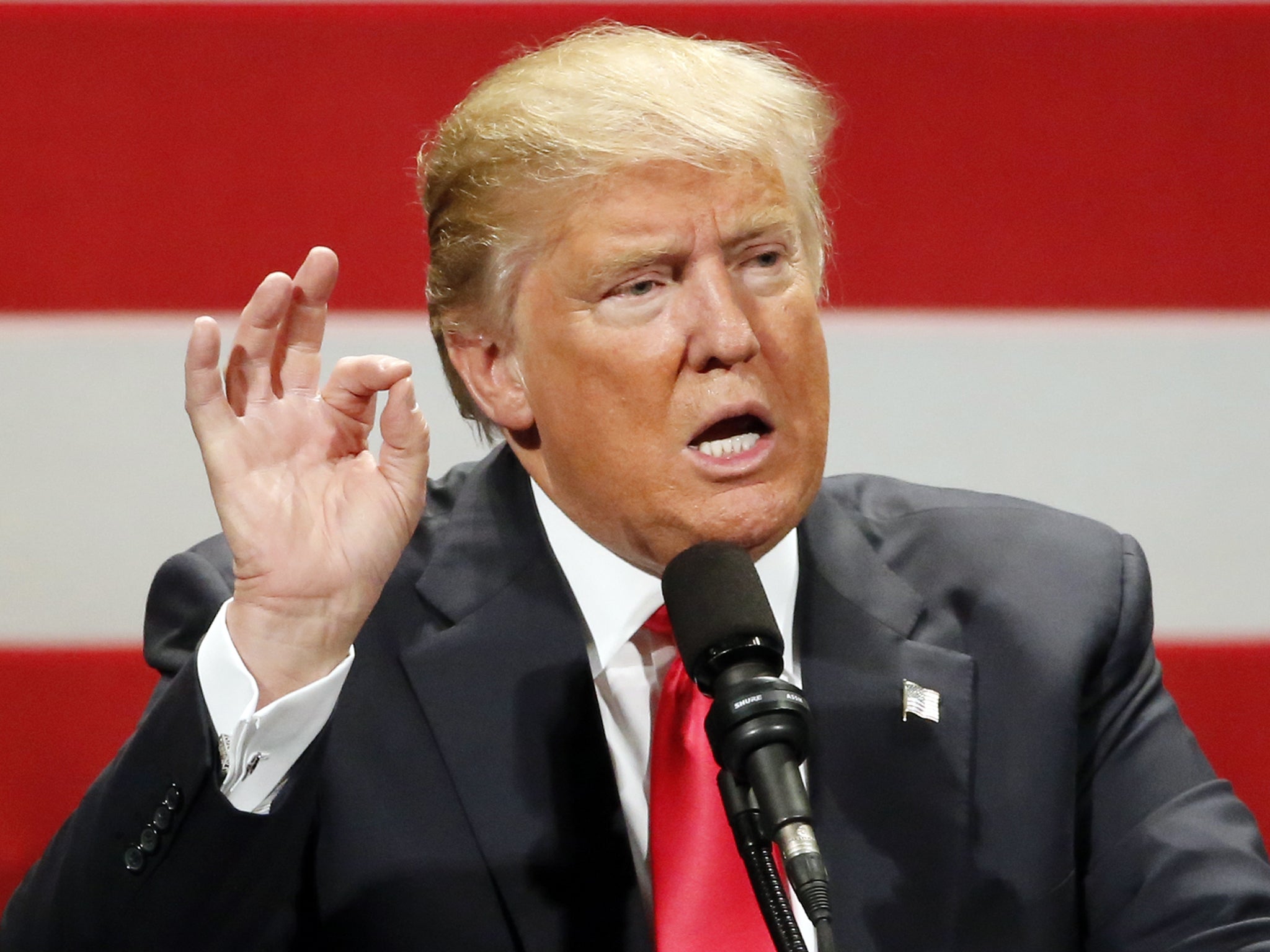Trump has finally revealed how he is going to pay for his wall
The GOP front-runner says he will seize money transfers to Mexico

Donald Trump finally revealed how he plans to force Mexico to pay for the wall he proposes to build on the southern border of the United States.
In a statement released on his official campaign website, Mr Trump explained that he would finance the controversial wall along the 1,100 mile (1,770km) border shared by the two countries by seizing the billions of dollars in remittance funds sent by immigrants to their families.
Mr Trump’s threatened Mexico in the memo, first released to the Washington Post, stating that he would not siphon the $24b from the country’s annual economy if they made a “one time payment” of $5-10b to fund the wall.
“There are several ways to compel Mexico to pay for the wall,” the memo reads.
Among those ways includes forcing money transfer companies to require immigrants to provide identity documents proving lawful status in the US in order to wire funds to their home country — which Mr Trump justifies citing the “know your customer” provision from the US Patriot Act.
The Trump Administration would also proceed to add tariffs to Mexican imports, cancelling visas, and increasing visa fees for the Latin American country.
“Immigration is a privilege, not a right. Mexico is totally dependent on the United States as a release valve for its own poverty — our approvals of hundreds of thousands of visas to their nationals every year is one of our greatest leverage points.”
Mr Trump adds that even a slight increase to visa fees would cover the cost of the proposed wall.
The Post points out that the $24b figure is derived from remittances sent to Mexico from around the globe, not exclusively the US. But the economy of the country still relies on such payments.
The Associated Press reported that the Mexican economy earned more from remittance payments than it did from its petroleum industry — the first time since the country began tracking the transfers in 1995.
Subscribe to Independent Premium to bookmark this article
Want to bookmark your favourite articles and stories to read or reference later? Start your Independent Premium subscription today.

Join our commenting forum
Join thought-provoking conversations, follow other Independent readers and see their replies